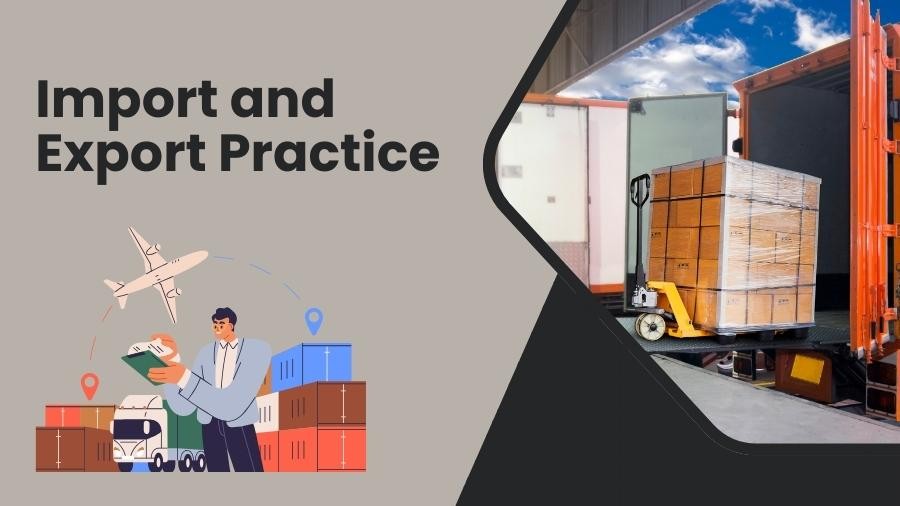Success in Global Trade - Essential Importing Strategies and Best Practices

The complexities of global trade continue to grow, making effective importing more crucial than ever for businesses aiming for success in the international marketplace. As the dynamics of importing evolve, the necessity to adopt streamlined and efficient practices becomes apparent. Understanding the importing process and implementing best practices can significantly enhance operational efficiency and contribute to the overall profitability of a business.
Mastering the art of importing is essential for organizations looking to optimize their supply chains and reduce costs. Inefficient importing processes can lead to various challenges,
including delays, unexpected expenses, and regulatory compliance issues. The successful navigation of these challenges can set a business apart from its competitors and position it for sustained growth.The article, “Successful Importing Process and Best Practices,” serves as a vital resource for business owners, logistics managers, and supply chain professionals. It delves into strategies and techniques that can be employed to enhance the importing process, making it an invaluable read for anyone involved in international trade.
Key Insights into Effective Importing
The article outlines several best practices that can help streamline the importing process. These practices not only reduce inefficiencies but also ensure compliance with international regulations, thereby minimizing the risk of costly mistakes.
1. Supplier Evaluation
One of the first steps in a successful importing process is the thorough evaluation of suppliers. Selecting reliable suppliers is critical, as they play a significant role in the quality and timeliness of goods. Factors to consider when evaluating suppliers include their reputation, financial stability, and ability to meet regulatory requirements. A well-conducted supplier evaluation can lead to better partnerships and smoother transactions.
2. Documentation Management
Efficient management of documentation is crucial in the importing process. Importers must ensure that all necessary paperwork, such as invoices, bills of lading, and customs declarations, is accurately completed and submitted on time. Proper documentation not only facilitates smoother customs clearance but also reduces the likelihood of delays that can arise from paperwork errors.
3. Compliance Checks
Staying compliant with international trade regulations is vital for avoiding legal issues and fines. Importers must keep abreast of changing regulations and ensure that their practices align with current laws. Conducting regular compliance checks helps identify potential issues before they escalate, allowing businesses to address them proactively.
For more detailed information about best practices in importing, the article highlights essential strategies that can significantly enhance operations. Importing Process and Best Practices are elaborated on within the text, providing insights that can transform an organization’s approach to international trade.
The Importance of Continuous Improvement
Importing practices should not remain static; they require constant evaluation and improvement. Market conditions and regulations are continually changing, and businesses must adapt accordingly. Regularly assessing and updating importing processes can lead to enhanced efficiency and competitiveness.
One way to foster continuous improvement is by seeking feedback from stakeholders involved in the importing process. Gathering insights from logistics partners, suppliers, and team members can highlight areas for enhancement and encourage collaborative problem-solving.
Addressing Challenges in Import/Export Operations
The import/export landscape presents numerous challenges that can impact business operations. Common issues include fluctuating tariffs, regulatory changes, and logistics complexities. Recognizing these challenges and developing strategies to address them is essential for maintaining a competitive edge in the market.
Businesses must be proactive in their approach to managing these challenges. Developing contingency plans and alternative sourcing strategies can help mitigate risks associated with changes in regulations or supply chain disruptions.
Integrating Technology for Enhanced Efficiency
Technology plays a crucial role in modernizing and improving importing processes. Various tools and software solutions can assist in inventory management, documentation, and compliance. Leveraging technology not only streamlines operations but also enhances accuracy and reduces manual errors.
For example, using a centralized inventory management system allows businesses to monitor stock levels in real-time, ensuring that orders are fulfilled promptly. Automation of documentation processes can also reduce the burden on staff and minimize the chances of errors that can lead to costly delays.
Building Strong Supplier Relationships
Establishing and maintaining strong relationships with suppliers is key to successful importing. Open communication and mutual respect foster collaboration and trust, which can lead to better pricing, priority handling of orders, and improved overall service.
Regular engagement with suppliers helps ensure that both parties are aligned regarding expectations, quality standards, and delivery timelines. This partnership approach can also facilitate smoother resolutions to any issues that may arise during the importing process.
Recommendation from the News Editor
The article “Successful Importing Process and Best Practices” provides valuable insights that can empower businesses to optimize their importing strategies. With the global marketplace becoming increasingly competitive, adopting effective importing practices is essential for achieving success.
Readers are encouraged to explore the full article for a comprehensive understanding of these strategies and their application in real-world scenarios. For further reading on effective import/export practices, refer to Import/Export Best Practices.
Embracing best practices in importing can lead to significant improvements in efficiency and profitability. For those involved in international trade, this article serves as an essential resource that outlines strategies to enhance the importing process.
Take the time to explore the detailed insights provided in the article, and consider how implementing these best practices can benefit your organization. Click on the provided links to gain a deeper understanding of successful importing processes and transform your approach to international trade.
By investing in the development and refinement of importing strategies, businesses can position themselves for sustained growth and success in the competitive global market.
Previous Story
- The Growing Landscape of Manufacturers in India
- Insights into Mexico's Business Landscape - Trends, Opportunities,...
- Grow Your Business with Future Digit to Dominate...
- Navigating the Business Landscape in Ghana with a...
- India rupee propped up by inflows, held back...
- Walmart shifts to India, cuts China imports
- Swedish Businesses Flourish in the Global Import and...
- Oman's Business Dynamics, Export Potential, and Trends